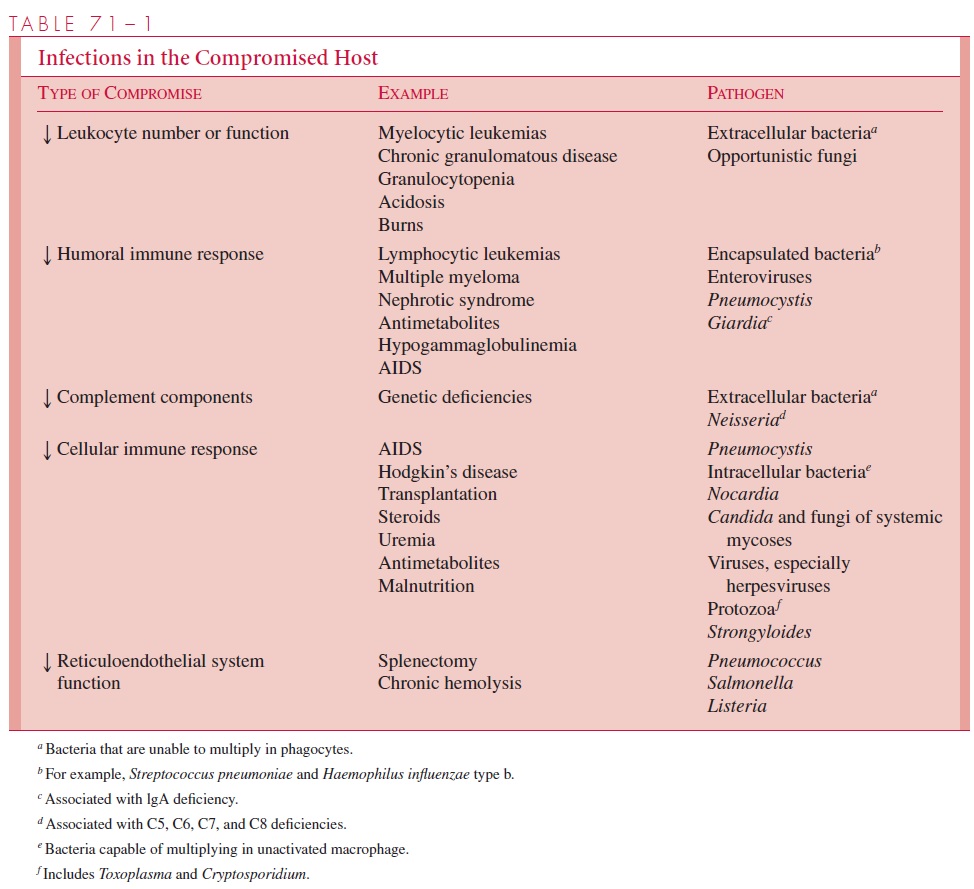Chapter: Medical Microbiology: An Introduction to Infectious Diseases: Infections in the Immunocompromised Patient
Infections in the Immunocompromised Patient
Infections in the Immunocompromised Patient
Immunocompromised patients are those whose host defense mechanisms are impairedby an inherited deficit, disease, or treatment. The immunocompromised state increases the risk of infection with many of the common pathogens as well as with low-virulence organisms present in the normal flora or environment. The organisms involved are those most able to take advantage of situations such as disruption of the skin or mucosal barri-ers and the more specific immune defects, including (1) defects in the phagocytic response, (2) defects in the complement system, (3) defects in antibody-mediated immu-nity, (4) defects in cell-mediated immunity, and (5) loss of reticuloendothelial function. Each of these defects tends to be associated with infections caused by specific groups of organisms (Table 71 – 1). For example, neutropenia and disorders of phagocytosis are associated with infections by Gram-positive cocci, Enterobacteriaceae, Pseudomonas, and fungi. In contrast, patients with defects in cell-mediated immunity tend to have severe viral, parasitic, and fungal infections or disease caused by bacteria that can multiply intracellularly (eg, mycobacteria). Those with defects in antibody production, such as agammaglobulinemia, are prone to infection with encapsulated organisms such as Strep-tococcus pneumoniae and Haemophilus influenzae type b.

Related Topics